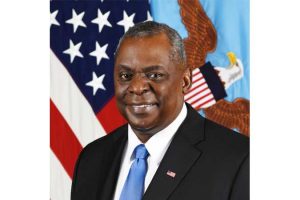Economy to sustain recovery — BSP

THE PHILIPPINE ECONOMY will likely sustain its recovery momentum this year, but risks remain from elevated inflation and a possible reimposition of coronavirus disease 2019 (COVID-19) restrictions to curb a fresh surge, the central bank governor said.
Bangko Sentral ng Pilipinas (BSP) Governor Felipe M. Medalla on Monday said the economy will continue to expand amid these “challenging times.”
“On the home front, we expect the Philippine economy to sustain its recovery. We note that quarterly private consumption expenditures have surpassed the pre-pandemic levels already and continue to grow as the economy further opens up,” he said during a lecture series organized by the BSP Research Academy and the University of the Philippines School of Economics (UPSE).
In the first quarter, gross domestic product (GDP) expanded by a better-than-expected 8.3%, surpassing pre-pandemic output level as household spending rose with the easing of mobility curbs.
At current prices, household spending reached P3.86 trillion in the first quarter, higher than P3.40 trillion in the January-March period last year. This was also bigger than P3.34 trillion in the same period in 2019 before the pandemic.
At constant 2018 prices, household spending picked up by 10.1% in the first three months of the year, a turnaround from 4.8% decline in the first quarter last year.
Mr. Medalla noted the “employment picture has improved significantly from pre-pandemic levels,” providing support for future economic growth.
Philippine Statistics Authority (PSA) data showed the size of the labor force in May was approximately 49.011 million, up by 618,000 from 48.393 million in April. This brought the labor force participation rate (LFPR) to 64% of the country’s working-age population in May improving from 63.4% the previous month.
The employment rate was recorded at 94% in May, equivalent to 46.084 million employed people versus April’s 94.3%, which is equivalent to 45.631 million.
Economic managers expect GDP to grow by 6.5-7.5% this year, faster than last year’s 5.7% growth.
RISKSThe BSP chief said the domestic economy faces risks from elevated inflation, as well as a possible reimposition of restrictions to curb a surge in COVID-19 infections.
“The greater risks emanate from the policy spillovers as monetary authorities respond to inflationary pressures with hikes in policy interest rates,” Mr. Medalla said.
In a surprise move, the Monetary Board last week raised its key policy rate by 75 basis points (bps), bringing the benchmark rate to 3.25%. Rates on the overnight deposit and lending facilities were also hiked by 75 bps to 2.75% and 3.75%, respectively.
The BSP expects inflation to remain elevated in the next few months. Inflation rose by 6.1% year on year in June, the fastest in nearly four years and exceeded the central bank’s 2-4% target band for a third straight month. The average inflation rate in the first six months is 4.4%, still below the BSP’s full-year forecast of 5%.
“Another pocket of risk is the possible imposition of local COVID-19 restrictions amid an uptick in infections. The confluence of events poses a challenge to risk pricing and market valuations of financial assets,” Mr. Medalla said.
The Philippines is currently facing a spike in new COVID-19 cases, driven by more infectious variants, increased mobility of citizens, and waning immunity.
The Philippines posted 14,640 new COVID-19 infections from July 11 to 17, with a daily average of 2,091 cases, the Health department said on Monday. The latest daily average is 44% higher than the 1,467 average cases per day from a week earlier.
Metro Manila and most parts of the country remain under the most lenient Alert Level 1.
“The BSP remains vigilant to the possible spikes in financial instability and stands ready to employ all the available tools to maintain the orderly conduct of transactions in our financial system and in the broader economy,” Mr. Medalla said.
The Monetary Board’s next policy meeting is on Aug. 18. — K.B.Ta-asan




